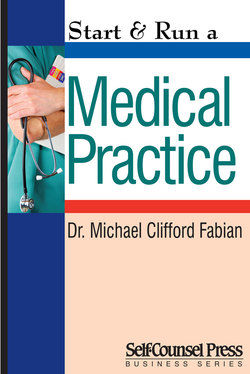Читать книгу Start & Run a Medical Practice - Michael Clifford Fabian - Страница 26
На сайте Литреса книга снята с продажи.
1.1 You are a caregiver
ОглавлениеAs a caregiver, you get to care for your fellow human beings. From the time a person first steps into your office, into the hospital, into the operating room, or a specimen arrives at the laboratory, you are on the road to helping someone. This help can make a big change in someone’s life, as well as the lives of those around the person.
For example, let’s say your first patient of the day walks into your office with a severe sore throat. This person has come to you for help because he or she is unwell and has tried all the measures he or she can to make the situation better. You take a throat swab that turns out to be positive for a bacterial infection of the throat (i.e., strep throat). You prescribe a course of antibiotics, and within 48 hours the patient is much better, back at school and on the football field. The patient phones your office two days later and thanks you, as he or she is feeling much better. How rewarding is that? This is just one example of how you can make a change in another person’s life.
Medicine is all about taking care of people. This can occur in a myriad of ways, both directly and indirectly. No matter what field you choose, it will ultimately be about taking care of a patient. On the one end of the spectrum you might have the clinician who cares for, and about, his or her patients on a daily basis. On the other end of the spectrum you can have the clinician scientist, or pathologist, who cares about patients in a very different manner. Neither of these disciplines cares any more, or any less, about their patients, but rather cares for them in different ways.
Some of my mentors and role models, whom I can think back on, imprinted very specific characteristics relating to how I practice today. The most outstanding common feature is the way they cared for their patients, as well as others around them. To give you one example, I remember one particular surgeon during my residency training days that made an extra effort to make sure parents felt comfortable with any, and all, aspects of their child’s care. He really listened and made the parents feel like their child’s treatment was the most important thing that was going on at that very moment in time. Spending just a few extra minutes to make sure the parents were more comfortable meant the world to them and it was clearly evident.
For those who might be less caring, situations can come up in which a feeling of discomfort and anxiety on the patient’s part can arise, maybe even some animosity. Not only can this have an impact on the patient, but also on the physicians and any of the other people involved in the care of this patient. Negative energy has a domino effect — a health professional’s emotions can have implications on those around him or her. If you look at all the different allied health care fields mentioned earlier in the book, this concept can be applied to all of them.
